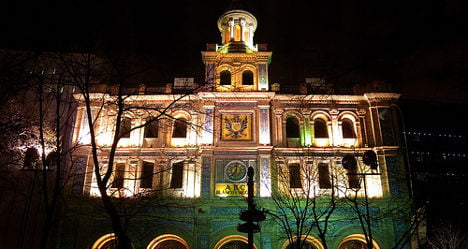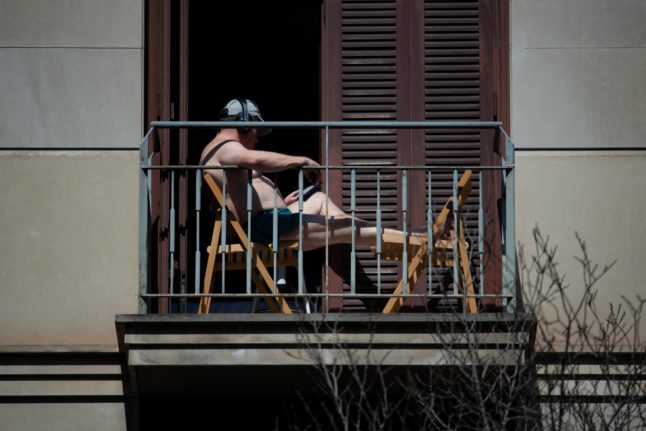Like shops, offices, and apartments across Spain, it has been snapped up by foreign buyers, who are streaming back a year after economists were warning the country faced ruin.
"Since this summer there has been investment fever in Spain," said Jose Luis Ruiz, an independent real estate consultant.
"There are dozens of investment funds from all the major countries, such as Americans, Germans and British, who are focussing on Spain."
Topped by a cupola and overlaid with blue tiles, ABC Serrano was formerly home to ABC, a leading conservative newspaper.
"It had become obsolete over the years but it still benefits from its unique location," said Thierry Julienne, chairman of IBA Capital Partners, the international investment group that bought the building.
"This is a fantastic opportunity for us to recreate a first-rate landmark in the socio-economic fabric of central Madrid," he told AFP.
Los Angeles-based real estate giant CBRE said in a report that investment in Spanish real estate has returned to the levels it reached before the crisis of 2008, when a decade-long building boom went bust.
Such investment doubled in 2013 to four billion euros ($5.5 billion) thanks to international investors, it said.
Mikel Marco-Gardoqui, CBRE's director of cross-border investment in Spain, said the surge was driven largely by investment funds from the United States, Britain and France, plus rich private investors from Latin America.
"Lots of investors, mostly international ones, are coming back to the market, and that is driving a slight recovery in prices," he told AFP.
"There is lots of floor space available, the prices are starting to rise, profitability has improved, so they are coming back to the market very actively."
In the residential sector, Ruiz said, "there are loads of foreigners — French, Belgians, Dutch, British, Germans and lately Russians who want to have a house here for their retirement, or as a second residence."
House prices rose by 0.7 percent overall in Spain in the third quarter of this year, the National Statistics Institute said — the first rise since 2010.
The figure was hailed as a further sign of recovery after news that Spain timidly emerged from recession in the third quarter of this year.
But professionals remained cautious, even if prices are starting to rise in coveted spots such as the sunny coasts.
Spain's banks, which were bailed out last year with €41 billion ($56 billion) of international rescue funds, still have piles of cheap properties left over from the building boom, which have lost much of their value.
The overall rise in house prices "is a positive figure, obviously," said Carlos Ferrer-Bonsoms, a Madrid-based director at international real estate firm Jones Lang LaSalle.
"But at the same time people are asking how it is possible when you consider how long the banks will take to get rid of the stocks they have."
Fernando Encinar, one of the founders of Spain's leading property advertising website Idealista, estimated the number of unsold homes on the market at 1.5 million, casting doubt on the prospects for a sustained recovery in prices.
Nevertheless, he said, home purchases in certain areas and among certain people are thriving.
Middle-class Moroccans are buying homes in Malaga and "the French are buying like crazy on the Costa Brava," an eastern beach region long popular with the British.
Another increasingly common profile of buyer, Encinar added, is the so-called "Russian widow", set up with her children in a house in sunny Spain while the working father stays based in Russia.
The 2008 collapse plunged Spain into a double-dip recession, throwing families into poverty and driving the unemployment rate up to 26 percent.
Estimates by the government and Idealista indicate that house prices have fallen overall by about 30 percent since early 2008.
But the public works ministry said the number of homes sold in Spain in October 2012 to September 2013 was 1.4 percent higher than a year earlier.
In that period, the number of homes bought by foreigners surged by nearly 25 percent. Foreigners accounted for a record 17 percent of those sales, with British, French and Russian homebuyers in the lead, the ministry said.
"We have the good fortune to be a country very popular with tourists" and foreigners who want to settle here, said Ruiz.
"Spain is in such a bad way at the moment that our only way out is through outside investment," he added. "It is very hard to do it by ourselves."



 Please whitelist us to continue reading.
Please whitelist us to continue reading.
Member comments